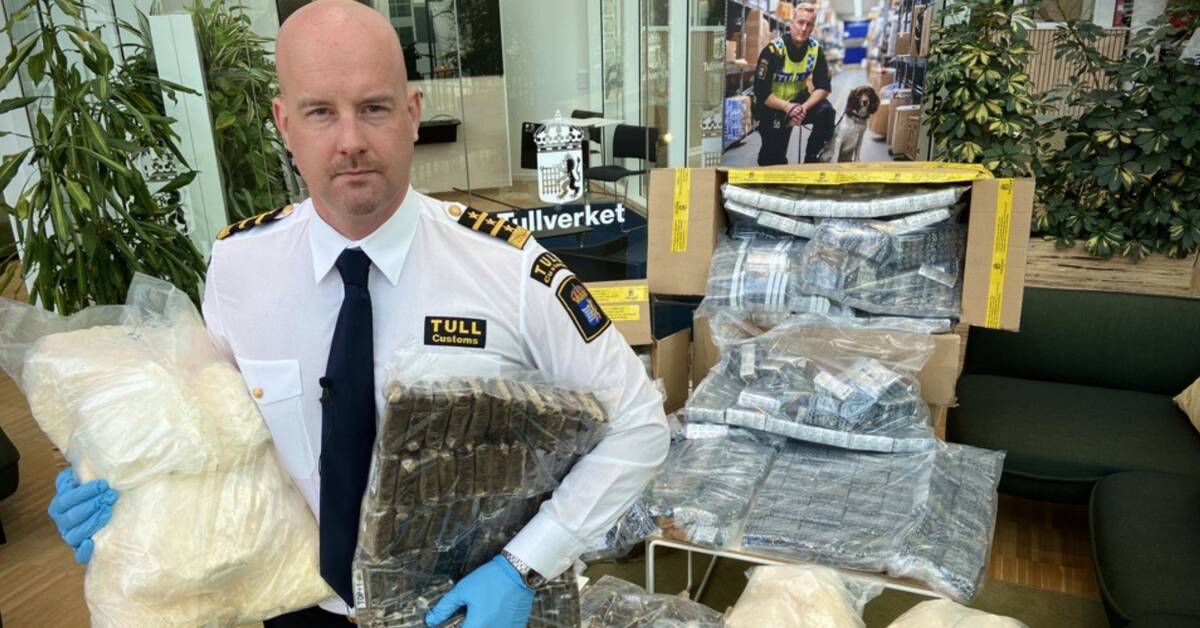- We did 12,000 more inspections than last year.
We have also continued to take larger batches, cocaine seizures increased by 20 percent, amphetamine by 50 percent and we continue to take large batches of cannabis, says Director General of Customs Charlotte Svensson to TT.
Cracked crime taxes have contributed to the customs in addition to the carriers also being able to access the person behind the smuggling, she says.
In the clip, you see some of the larger seizures that have been made, including cannabis resin from North Africa.
Goes under the radar
It is in the heavy traffic that the biggest seizures are made.
But despite the fact that large parties have been stopped, there are also a lot of drugs that go under the radar.
Last year, the police estimated in a report, after reviewing material from Encrochat, that between 100 and 150 tonnes of drugs are smuggled to Sweden every year.
Customs took about 6 tons of drugs last year.
- We are aware that there is a lot of smuggling that we do not see.
We have a long land border and are not everywhere, says Charlotte Svensson.
Photo: Anja Haglund / TT
Tramadol a "giant problem"
Another trend is that seizures of tramadol, a drug-classified drug that has become popular among young gang criminals, nearly doubled last year - from 382,000 tablets in 2020 to 726,000 last year.
- It is a huge problem that so much is smuggled.
Often the tablets that are smuggled have a stronger substance than those prescribed by doctors.
It is used as self-medication in much broader groups (than gang criminals), by people who feel bad.
It is a societal problem, says Charlotte Svensson.
"Myrtrafiken" back
In 2022, the pandemic may come to an end and people will start traveling more again.
The Swedish Customs has already drawn attention to a new-old trend - alcohol smuggling across the Sound is back.
- We have had problems with what we call "bog traffic" - people travel back and forth across the strait with filled cars.
We see that it is increasing again and that is probably because there is a market, says Charlotte Svensson.

